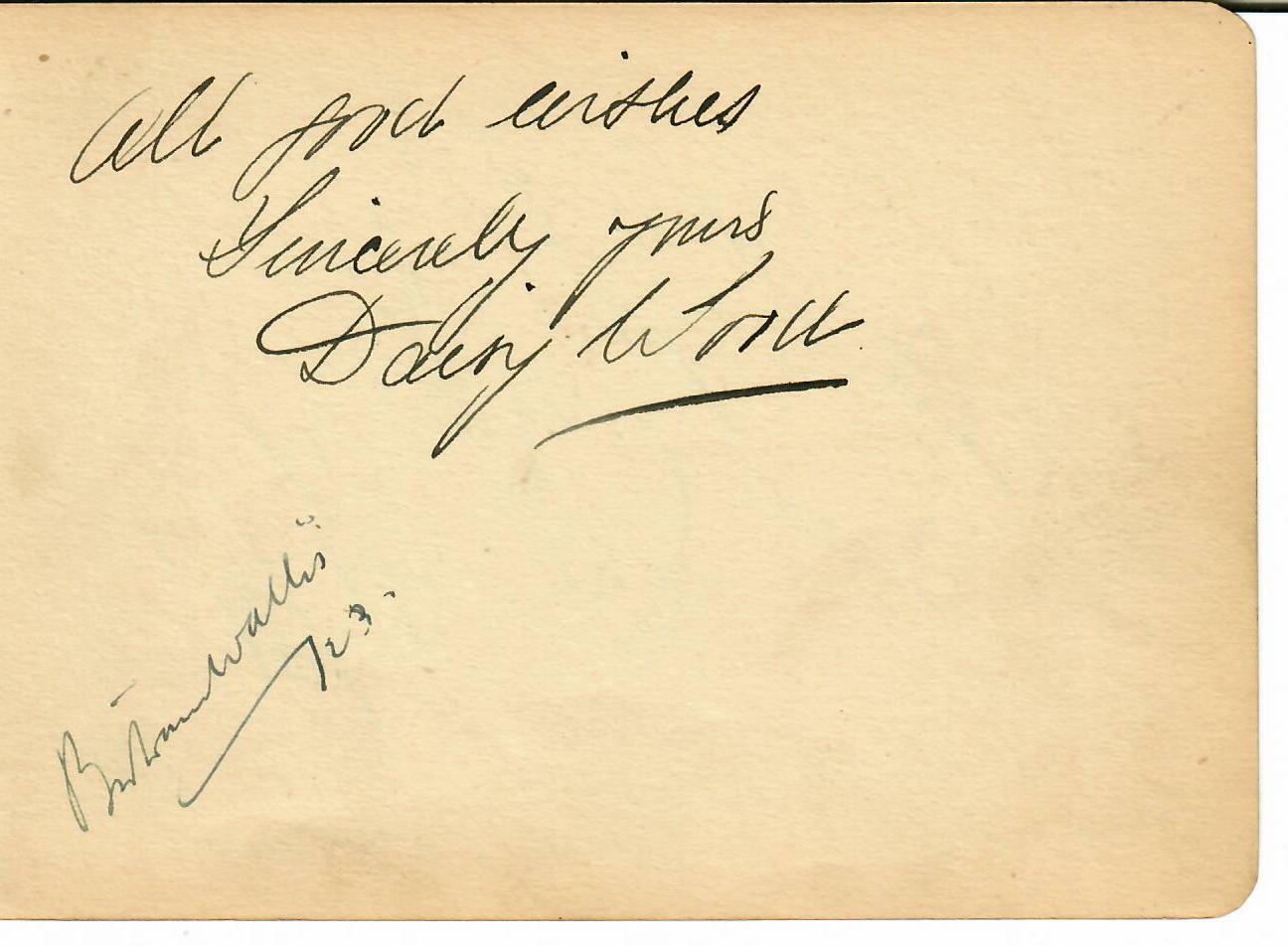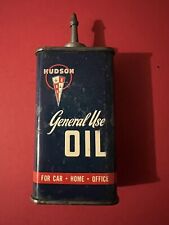When you click on links to various merchants on this site and make a purchase, this can result in this site earning a commission. Affiliate programs and affiliations include, but are not limited to, the eBay Partner Network.
Up for sale a RARE! "1930/40's Stars" Multi Signed Album Page. Signers are; Will Fyffe, Daisy Wood and Bertram Wallis.
ES-4316
Will Fyffe, CBE (16
February 1885 – 14 December 1947) was a music hall and performing artist from
Scotland, a star of the 1930s and 1940s, on stage and screen. Fyffe made his
debut in his father's stock company at the age of six. He travelled extensively
throughout Scotland and the rest of the UK, playing the numerous music halls of the time, where he performed his sketches
and sang his songs in his own inimitable style. During the 1930s, he was one of
the highest paid musical hall artistes in Britain. In addition, Fyffe appeared
in 23 major films of the era (American and British), sometimes starring, and
recorded over 30 songs, delivered with his own unique style. His
singer-songwriter skills are still well-known today, particularly his own
composition, "I Belong To Glasgow". This
song has been covered by Danny Kaye, Eartha Kitt, Gracie Fields and Kirk Douglas:
"If your money, you spend,
You've nothing to lend,
Isn't that all the better for you"
As a result of this song, Fyffe became
forever associated with Glasgow, even though he was born 70 miles
(110 km) away in the east coast city of Dundee, where a street bears his surname. Fyffe was also
Freemason, who was initiated and then became a full member of Lodge St John,
Shotts No 471. Fyffe left some rare footage of his stage act, which gives us a
glimpse of stage life in those times. In the footage, he performs the
"Broomielaw" sketch and sings his song "Twelve and a Tanner a
Bottle". The footage came about as a result of a screen test, shot for
Pathe in New York in 1929. Fyffe died after falling from a window in the Rusacks
Hotel in St Andrews in December 1947. The fall has been attributed to dizziness
caused by an operation on his ear.
Daisy Violet Rose Wood (15
September 1877 – 19 October 1961), was an English music hall singer. Wood was born in Hoxton, London, the fifth of nine children, the
oldest being Matilda Alice Victoria Wood (1870–1922), who performed under the
stage name Marie Lloyd. Seven of the
siblings took up stage careers. In their earliest years, costumed by their
mother (Matilda Mary Caroline), they performed as The Fairy Bells
Minstrels, singing temperance songs in local missions and church halls. This
ceased when the eldest sister made her professional debut at the age of
fifteen. The children were entranced by music hall, their father (John, an
artificial florist) working in the evenings at the nearby Royal Eagle Tavern. Daisy
made her own first professional appearance in a play entitled My Willie at
the South London Palace, on 17 March 1890. She went on to perform a solo
musical act, making the most of her petite and dainty figure. She was thought
to have been the prettiest of the sisters. On 26 April 1899 she married Donald
Alexander Munro, an insurance broker and chairman of the Crown Theatre. She was
only 21, and her husband 26, when she retired from the theatre. They had two
children, Donald (1902) and Dorothy Grace (1906). They moved to Kensington, but Donald fell ill the following year, and their
fortunes were under pressure. In her late twenties, Daisy returned to the
stage, and due to the increasing fame of her sisters, at the top of the bill.
In 1908 she was offered an immense sum to tour New York with her sisters (Marie, Alice and Rosie), by
the William Morris Agency, and
in the autumn they performed in New York, to great acclaim. Her husband died on
24 September 1911, aged 39. She continued to tour throughout the British Isles
and internationally, until she finally retired in 1928, but occasionally
returned to the stage with her sisters Alice and Rosie during the 1930s
and World War II. Daisy Wood
died on 19 October 1961, aged 84 at her home in Banstead, Surrey.
Bertram Wallis (22
February 1874 – 11 April 1952) was an English actor and singer known for his
performances in plays, musical comedies and operettas in the early 20th century, first as leading men
and then in character roles. He also later appeared in several film roles. Wallis
was born in London. He was the son of Frederick Augustus Wallis and Sarah
Mary (née Williams). A huge man who stood almost 7 feet tall,[ he
won the Westmorland Scholarship to study voice at the Royal Academy of Music, where
he won the Parepa-Rosa gold medal and the Evill Prize. After his studies, his first role was Amiens
in George Alexander's production
of As You Like It in
1896.[5] Edward German composed the music for the production, and
Wallis's performance of his songs won praise: "Mr. Bertram Wallis as
Amiens sings his solos so well as to quite justify Jacques's remark, 'More, I
pr'y thee, more'." Soon afterwards, he played in Much Ado About Nothing,
his last production of a Shakespeare play. In the early years of the 20th century,
Wallis had his first successes on the musical stage. He sang in a five-man act
called "The Musketeers" music hall at the Tivoli Theatre in 1901. In 1902 he
appeared in the musical comedy Three Little Maids at
the Apollo Theatre, with Lottie Venne, Sybil Grey and Edna May. In 1904 he appeared with Kate Cutler in The Love Birds. He then
travelled to New York City to play in several Broadway productions,
including A Madcap Princess (1904), Princess Beggar (1907)
and Miss Hook of MacDonald.[ After this, Wallis
starred in a series of successful London musicals, often with Isabel Jay or Jose Collins, including King of Cadonia (1908), Dear Little Denmark (1909) and The Balkan "What a ... fine specimen of mankind is the Grand Duke Sergius
as played by Mr. Bertram Wallis!" He next starred in The Count of Luxembourg (1911).
In 1911, Wallis temporarily left the musical stage to appear in a
non-musical melodrama, Beau Brocade at
the Globe Theatre, for which
he won good notices.
.







